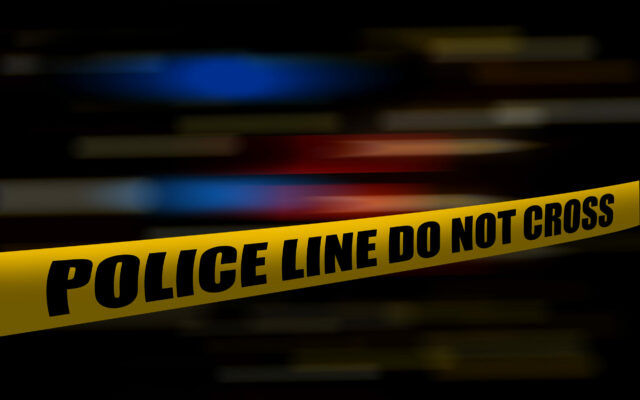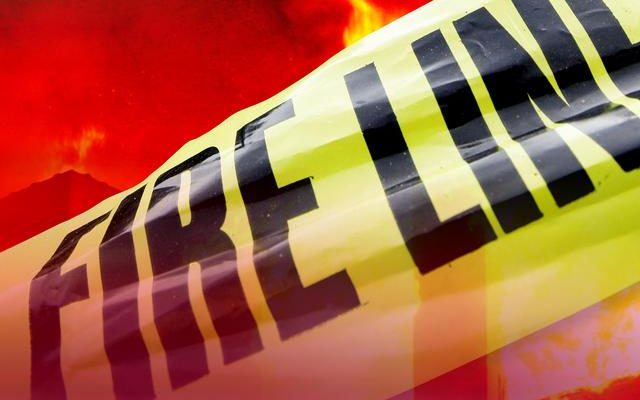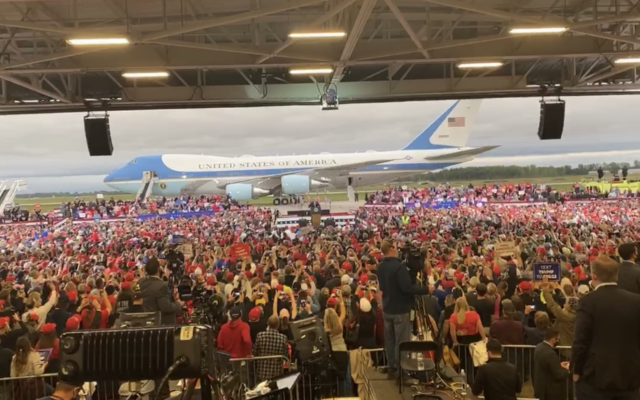Supreme Court weighs free speech case of Pennsylvania cheerleader punished for salty Snapchat

Washington — The Supreme Court on Wednesday grappled with how far school’s authority to discipline their students for speech that occurs off-campus extends, as the justices weighed the case of a cheerleader punished for a salty message posted to Snapchat.
The legal battle that played out across just under two hours of arguments, held remotely by telephone because of the coronavirus pandemic, marked the biggest case involving student speech to land before the high court in 50 years.
While the justices questioned whether the Snapchat message from Brandi Levy, the student at the center of the dispute, caused a substantial disruption to school activities, they wrestled with how to balance protecting political and religious speech while ensuring bullying or harassment that originates off school grounds doesn’t go unanswered by school officials.
“If schools are going to have any authority under Tinker outside of school, there has to be a clear rule,” Justice Samuel Alito said, referencing the landmark 1969 student speech ruling in Tinker v. Des Moines. “That’s what I’m looking for.”
Yet Justice Stephen Breyer said he is “frightened to death of writing a standard” given the evolving roles schools play in students’ lives.
The case before the justices began in 2017 with a message posted to Snapchat on a Saturday by Levy, then a 14-year-old rising sophomore in the Mahanoy Area School District, after learning she didn’t make her school’s varsity cheerleading team for the second straight season.
In an act of frustration, Levy shared with her 250 followers a self-deleting photo on Snapchat of her and a friend raising their middle fingers with the caption “”f**k school f**k softball f**k cheer f**k everything.” In a second message, Levy wrote “Love how me and [another student] get told we need a year of jv before we make varsity but that’s doesn’t matter to anyone else?”
While posts to Snapchat automatically delete after 24 hours, Levy’s image and accompanying caption made their way to one of her cheerleading coaches after one of her followers, a fellow cheerleader, took a screenshot of it. The coaches decided Levy had violated team and school rules on student conduct, and she was suspended from the cheerleading squad for her sophomore year as punishment.
After unsuccessfully appealing to school and district officials to reconsider her removal, Levy’s parents filed a federal lawsuit arguing the punishment for her off-campus speech violated their daughter’s free speech rights. A federal district court in Pennsylvania agreed and ordered Levy reinstated to the team. The 3rd U.S. Circuit Court of Appeals affirmed and ruled the Supreme Court’s landmark 1969 ruling in Tinker doesn’t apply to off-campus speech.
In that student speech case, which involved high school students punished for wearing black armbands to protest the Vietnam War, the Supreme Court said students do not “shed their constitutional rights to freedom of speech or expression at the schoolhouse gate.” Schools can, however, discipline students for speech that “materially and substantially” interferes with school activities.
The question at the heart of Levy’s case is whether schools can punish students for speech that occurs off campus, and the issue has taken on added weight in the digital age and during the pandemic, when many students turned to online learning, blurring the lines of campus boundaries.
Justice Clarence Thomas, who in a 2007 opinion expressed a desire for Tinker to be overturned, acknowledged the challenges social media brings with determining where the speech took place and whether it occurred under the school’s supervision.
“I don’t know how you locate the conduct in school versus out of school when you have social media,” Thomas told David Cole, national legal director of the ACLU, who argued on Levy’s behalf.
But in a nod to the court’s decision in Tinker that students’ First Amendment rights do not stop at the “schoolhouse gate,” Cole said that allowing officials to regulate students’ speech off-campus effectively means they will be “carrying the schoolhouse with them wherever they go.”
“B.L. was punished for merely expressing frustration with a four-letter word to her friends outside of school on a weekend,” he said. “Her message may seem trivial, but for young people, the ability to voice their emotions to friends without fear of school censorship may be the most important freedom of all.”
Justices Sonia Sotomayor and Brett Kavanaugh suggested the punishment leveled at Levy did not fit her offense, as students frequently vent their frustrations about school to their friends on social media, and at times use foul language.
“Kids basically talk to their classmates, most of their conversation is about school, most of their exchanges have to do with their perceptions of the authoritarian nature, their teachers and others,” Sotomayor said. “Why isn’t this any different than just that the coach of this team took personal offense? She said she spent a few minutes talking to students reporting this incident. How is that a substantial disruption, number one, and how is the nature of the speech such that it intends to provoke disrespect when she put it to a page that was supposed to disappear and it was only a classmate taking a snapshot who showed it to anybody?”
Lisa Blatt, who argued on behalf of the school district, said Levy and other members of the cheerleading team consented to additional regulation as school ambassadors.
Still, Kavanaugh said the punishment imposed on Levy by the coach was a “bit of an overreaction,” and said her frustrated comment is emblematic of how much making the cheerleading team meant to her. Kavanaugh, who coached middle school girls basketball, noted that even NBA legend Michael Jordan remembered being cut as a sophomore from his varsity basketball team decades later.
“She’s competitive, she cares, she blew off steam like millions of other kids have when they’re disappointed about being cut from the high school team or not being in the starting lineup or not making all-league,” he said.
A decision by the justices is expected by the summer.



